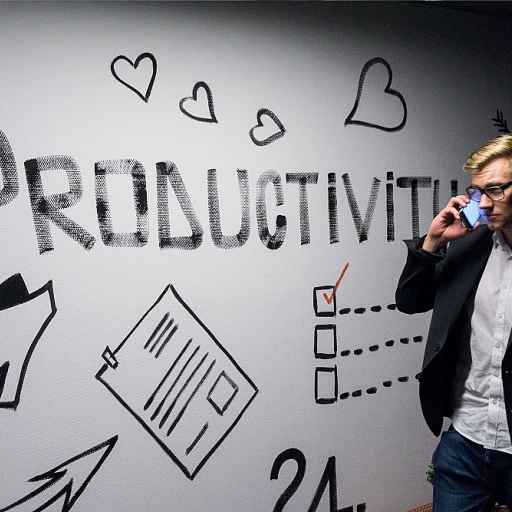
Understanding Lean Management Software
Unveiling the Fundamentals of Lean Management Software
Lean management software has become an instrumental tool for businesses striving to enhance efficiency and productivity. It originates from lean manufacturing principles, characterized by a commitment to continuous improvement, waste reduction, and optimizing resources. This software is adept at streamlining the management process, making it particularly valuable in the realm of human resources (HR). The adoption of lean principles in a business context is all about delivering high-quality products while simultaneously minimizing waste. Lean tools and methodologies like stream mapping, root analysis, and lean sigma ensure that every aspect of the production and work process is fine-tuned for excellence. Such tools support project management by promoting standard work and daily management which are vital for sustaining improvement and effectiveness. Management software centralizes and organizes a team’s efforts, allowing for enhanced problem-solving and real-time adjustments. This means even minor tweaks can lead to significant improvements when viewed through a lens of continuous improvement. Manufacturing software systems have advanced from their exclusive domain on the shop floor, now offering invaluable insights for HR strategists. What sets lean software apart is its ability to adapt and integrate with existing systems. Whether it’s through comprehensive project management or supporting business quality initiatives, the software ensures that improvement processes are efficiently managed. This makes it a pivotal tool in the arsenal of any Chief Human Resources Officer (CHRO) looking to align HR strategies with broader business goals. The role of a management system in HR is expanding, with lean methodologies demonstrating significant impact in uplifting the department’s performance metrics. For instance, understanding the influence of real-world data and technological integration is essential, as highlighted in this article about integrating people, technology, and processes. Leveraging these insights holistically can elevate HR strategies and business directives alike.The Role of Lean Management Software in CHRO Strategy
The Influence of Lean Software in Human Resources
Lean management software plays a pivotal role in refining the efficiency of CHRO strategy. By employing the principles of lean manufacturing, HR departments can streamline their processes and eliminate waste. This management software extends beyond traditional manufacturing boundaries, offering valuable tools for process improvement in the context of human resources.
Traditionally, HR processes can be labor-intensive and fraught with inefficiencies. The introduction of lean tools addresses these issues, enabling HR teams to adopt a continuous improvement mindset. Embracing lean methodology aids in identifying bottlenecks and improving overall workflow, much like in a manufacturing shop floor.
Facilitating Efficient Workforce Management
By leveraging lean management principles, HR can enhance project management capabilities. The use of comprehensive management systems allows teams to address issues in real time, using data-driven insights for better decision-making. Solutions such as stream mapping and standard work procedures provide clarity and consistency.
Moreover, the integration of software development for HR enables teams to enhance their daily management practices. Employing lean tools like root analysis enhances problem solving and supports sustained improvement in HR functions, ensuring high quality outcomes and better alignment with lean principles.
For a comprehensive understanding on how lean concepts apply to HR's technological developments and their impact, consider exploring this resource.
Key Features of Lean Management Software
Essential Elements and Benefits of Lean Management Software
In today's competitive business environment, lean management software stands as a game-changer, providing HR teams with essential tools to enhance efficiency and reduce waste. This software, inspired by lean manufacturing and lean principles, integrates seamlessly with business operations to promote continuous improvement and streamline processes. By leveraging these solutions, companies can ensure a more agile and responsive HR strategy. Clearly, not all lean management software is created equal. Some offer a robust set of features tailored to address specific business challenges, while others might focus on broader applications. Here's a closer look at some of the key features that make lean management systems invaluable to the CHRO's strategic arsenal:- Real-Time Analytics and Reporting: Lean software provides real-time data, allowing HR teams to make informed decisions quickly and effectively. For instance, through stream mapping and daily management insights, teams can precisely identify bottlenecks in the production process, facilitating prompt corrective actions.
- Continuous Improvement Tools: One core aspect of lean principles is fostering a culture of continuous improvement. Through problem-solving and root analysis tools, HR leaders can pinpoint inefficiencies and implement strategies to optimize production and quality, ultimately boosting business outcomes.
- Integration with Project Management Processes: Project management tools inherent in lean management software help align HR activities with overall business objectives. By applying lean sigma methodologies and standard work protocols, organizations can achieve seamless synergy between project management and HR goals.
- Enhanced Collaboration and Communication: The team-oriented approach of lean methodologies encourages a collaborative work environment. Through the management system, communication between the shop floor and HR is enhanced, thereby ensuring a cohesive project execution and higher quality output.
Implementing Lean Management Software in HR
Integrating Lean Management Software into HR Practices
Implementing lean management software in HR is a crucial step towards optimizing processes and enhancing productivity. This approach not only streamlines HR tasks but also aligns them with broader organizational goals. Here’s how HR departments can effectively incorporate lean management tools into their operations:- Assess Current Processes: Begin by evaluating existing HR processes to identify inefficiencies or waste within the system. Lean principles, such as value stream mapping and root cause analysis, can be instrumental in recognizing areas for improvement.
- Select the Right Tools: With a variety of lean tools and management software available, HR teams should focus on selecting those that best fit their specific needs. Lean sigma and lean manufacturing software are examples that can support continuous improvement and problem-solving efforts.
- Engage the Team: Successful implementation relies heavily on the involvement of HR professionals. By fostering a culture of continuous improvement and encouraging teamwork, the adoption of lean methodologies becomes more seamless.
- Design Standard Work: Developing standard work procedures is essential for ensuring consistency and quality in HR operations. This includes establishing daily management routines that facilitate real-time monitoring and adjustments as needed.
- Monitor and Improve: After implementing the software, it’s important to continuously track progress and make necessary adjustments. Utilizing project management systems can help maintain oversight of ongoing improvements and ensure alignment with business objectives.
Case Studies: Success Stories in HR
Proven Strategies that Highlight Lean Efficiency
Successful implementation of lean management software in HR departments can significantly enhance operational efficiency and productivity. These real-world examples underline the power of lean principles and the impact they can have on transforming HR practices. One organization in the manufacturing sector leveraged lean management software to streamline its recruitment process, achieving faster turnaround times and improved quality of hire. By employing lean tools such as root cause analysis and value stream mapping, the HR team was able to identify bottlenecks and eliminate unnecessary steps. This not only reduced time-to-fill but also enhanced the candidate experience, illustrating the synergy between lean methodology and human resources. In another case, a tech company utilized lean management systems to improve its employee onboarding process. Through continuous improvement initiatives and standard work protocols, the company significantly reduced onboarding time, quickly bringing new hires to their full productivity potential. The use of real-time data analytics and lean sigma principles facilitated a more efficient process, enhancing both employee satisfaction and operational output. Moreover, a business focusing on product development applied lean manufacturing software to its HR training programs. By integrating lean principles into project management and daily management practices, they managed to cut down on waste and improve the quality of training sessions. As a result, the workforce was better equipped with skills that directly contributed to meeting production and overall business goals. These examples demonstrate that with the right implementation, lean management software can be a pivotal asset in HR. It not only aids in waste reduction and process improvement but also fosters a culture of continuous improvement, ensuring HR functions align closely with broader business objectives.Future Trends in Lean Management Software for HR
Projected Evolution of Lean Management Software in Human Resources
The future of lean management software within HR is poised for significant advancement and transformation. As businesses continue to embrace the digital era, the integration of lean principles into HR systems is expected to grow, fostering better resource management and improved production processes.- Integration with AI and Machine Learning: The role of artificial intelligence and machine learning in lean management software is becoming increasingly prominent. These technologies will enhance real-time data analysis, streamlining problem-solving and root cause analysis. For instance, AI can predict potential bottlenecks in daily management practices and suggest effective solutions based on lean principles.
- Increased Focus on Continuous Improvement: Lean management's core tenet of continuous improvement aligns perfectly with HR's evolving nature. With the integration of advanced lean tools and process improvement methodologies, HR departments can optimize the workforce's standard work tasks, reducing waste in terms of time and effort.
- Embracing Lean Sigma Approaches: Combining lean principles with Six Sigma's focus on quality improvement is expected to become more prevalent. This blend will not only help in waste reduction but also enhance the overall quality of HR processes, resulting in a more efficient management system.
- Enhanced Visualization and Mapping Tools: Future HR software will likely include more sophisticated stream mapping and visualization tools. These enhancements will assist HR teams in better understanding and optimizing the manufacturing-like processes within HR, boosting productivity and facilitating effective project management.
- Advanced Real-Time Collaboration Features: As remote work continues to influence business environments, lean management software will likely develop more comprehensive solutions for real-time team collaboration. This evolution will include better communication tools and more cohesive project management systems, ensuring seamless coordination among all stakeholders.
- Sustainable Business Practices: Lastly, as businesses focus on sustainability, lean manufacturing strategies will adapt to create environmentally friendly HR practices. Lean software will support eco-conscious business goals, maintaining high standards of quality while reducing environmental impact.













